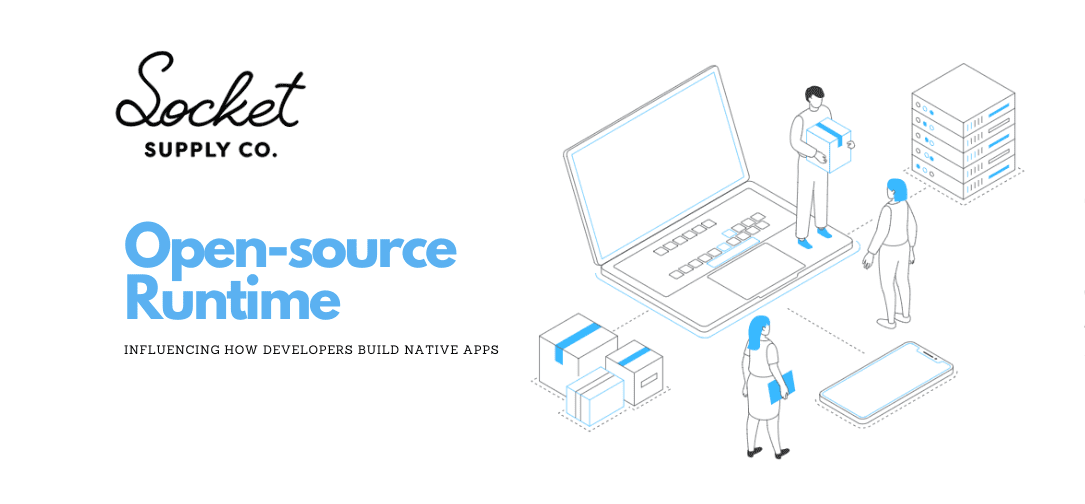A little-known startup has come out of stealth with an open-source Runtime that could fundamentally change the way developers build native apps.
Perhaps more importantly, it could make the centralized multi-billion-dollar cloud business – handily controlled by AWS, Azure, and Google Cloud – entirely optional. And that has everyone from Fortune 500 companies to the U.S. government paying attention.
Socket Supply Co.’s Runtime is “write once, run anywhere” – in other words, developers can build apps for any OS – desktop and mobile – using their favorite front-end libraries. It’s about efficiency; until now, developers couldn’t build software for every OS and platform without multiple code bases, resources, expertise, and significant time investment. But where the rubber really meets the pavement is Socket’s Peer to Peer (P2P) capabilities. Apps that run P2P have no need for a centralized cloud and can function even when users are offline, the company says.
As Paolo Fragomeni, Socket CEO, put it, “Imagine not having AWS as your landlord. You’re no longer held hostage by a server you neither own nor control. As it stands today, the more success you have, the more your company grows, the more you’re punished with staggering cloud costs and no viable way out.”
Fragomeni isn’t wrong. Just ask Elon Musk, who earlier this year skipped out on Twitter’s AWS bill and directed management to cut infrastructure costs by $1 billion. Among small to medium businesses, 53 percent are now spending $1.2 million annually on cloud computing, up from 38 percent in 2021, according to recent studies. Enterprises are spending $12 million or more annually on selected public cloud services; the biggest spend billions annually.
But a centralized cloud infrastructure controlled by three of the largest NGOs in the world is not just a cost issue. It’s also a massive security issue if you’re the U.S. government. It’s also why Socket has been working with the U.S. Department of Defense and National Security Agency, among others.
“The centralized cloud is a black box, and no matter how you slice it there’s a third party between you and your end user,” Fragomeni said. “This is about eliminating the middleman. In a warzone, drone operators could communicate directly with ground forces device to device without the risk of prying eyes or data leaks. You can’t guarantee that privacy with a central cloud.”
Most P2P libraries that exist today weren’t designed with mobile topologies in mind. And unfortunately, today, P2P is unreliable and not widely understood, Fragomeni said. Socket solves some of P2P’s biggest technical challenges: Connecting peers (with comprehensive NAT traversal), the ability for all peer types to reliably connect with one another. And ensuring packets are delivered (partition tolerance), the ability for a network to remain stable as peers come in and out.
As of today, Socket Runtime is available on GitHub.



































